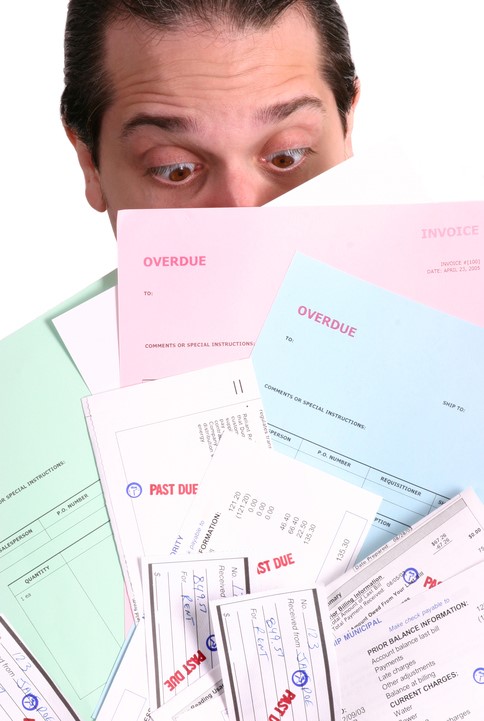If yours is one of the 80% of American families that hold some form of debt, you’re at risk of finding yourself on the slippery slope toward being eyeball-high in debt with little hope of ever digging yourself out. A good way to avoid this kind of financial catastrophe is to understand why people allow themselves to get to that point. Here are 7 reasons why you’re in debt up to your eyeballs:
1. You have no spending plan.
No matter what your income, having financial goals and a plan to achieve those goals is essential to solvency. Part of this plan should be to create an emergency reserve to handle those unexpected expenditures that always seem to come up – car repairs, appliance repair or replacement, etc. Families that have no plan, or at least an emergency reserve, have to resort to credit cards or other forms of debt to handle emergencies.
2. You try to keep up with the Joneses.
This has become an American tradition. For some reason, we seem to want to do better than everyone else – or at least appear to be doing better. But more often than not, this mindset leads to borrowing beyond our ability to comfortably repay. Whether it’s buying a new Lexus because your neighbor just bought a new BMW, or buying a newer version of the iPhone than your coworker, this is a dangerous habit to fall into. If you find yourself wanting to keep up, take a pause and ask yourself if you really need that new car, or iPhone, or whatever. More importantly, is it worth blowing up your financial plan to get it?
3. You lack self-discipline.
People usually fall into financial traps because they lack the self-discipline to curb their desire for “stuff”. If your primary financial goal is to get and stay our of debt, self-discipline will play a major role in the process. Financial self-discipline helps you evaluate your desires and buying habits in the context of your financial goals. In this endeavor, discipline is your best friend, and you should treat it as such.
4. You buy a new car every couple of years.
Another element of keeping up with the Joneses is being “the Joneses”. When you buy a new car every two years or so because you’ve convinced yourself that “you deserve it”, you’re setting a dangerous precedent. Now you’ve created a subconscious need for a new car every two years just to keep up with yourself. Rather than relishing the idea of having a new care every two years, start being proud of not having a monthly car payment.
5. Credit rules your world.
Many people view shopping as therapy to help them get over a hard week at work. No money? No problem. They just whip out the credit card and buy that new outfit, tennis racquet, fancy dinner, etc. The problem is, that little-bit here, little-bit there adds up quickly. Before you know it, the card is maxed-out and you’re applying for another one, and the vicious cycle begins. Be satisfied with the fact that your reward for a hard week at work is your paycheck.
6. You’re an impulse buyer.
We’re all familiar with giving in to the temptation of buying those candy bars and other items on display at the checkout line. That’s pretty benign. But when you’re at the home improvement store and you start making unplanned purchases like a new cordless drill to make your project easier, that can be a problem. When you’re tempted to make such a purchase, stop and ask yourself if there’s a more economical alternative like borrowing a tool from a friend to finish the project.
7. You overspend on gifts.
This is a problem that most people don’t think about, but many habitually overspend on gifts. There are many reasons for this, but only one solution: specify in your financial plan what occasions you’ll need to buy gifts during the year, and how much you can afford to spend on them. Then stick to that plan. Remember, it’s not how much you spent that matters. It’s the thought behind the gift that counts.
Contact us today to learn more about how to eliminate debt from your life. Meanwhile, we invite you to follow our blog for more useful financial content.

